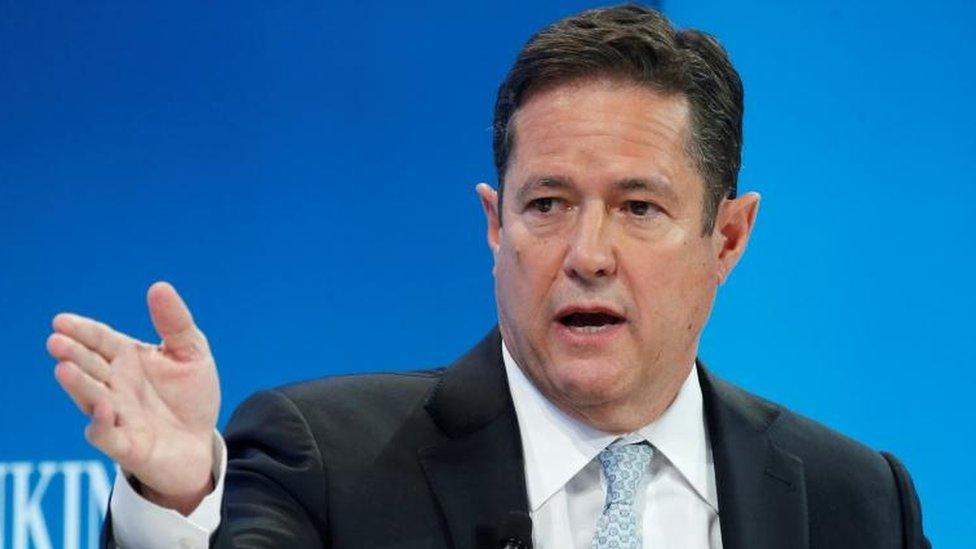Barclays outlook bright, but boss under dark cloud
- Published
- comments

Can Jes Staley retain the faith of shareholders?
Barclays has posted another set of solid quarterly results, with profits at its core bank more than doubling to £1.7bn in the first three months of the year.
The bank's financial strength improved and it added another 1,000 UK jobs. The chief executive, Jes Staley, said there was plenty of reason to be optimistic about Barclays' future.
The same can't be said of his own future.
He has already been seriously reprimanded by his own board and had his pay docked by more than a million pounds for attempting to unmask the identity of a whistleblower who questioned the appointment of a former colleague from JP Morgan.
He is under investigation for the matter by financial regulators, and several big shareholders have privately expressed doubt that he can continue in the glare of an incident that has put Barclays' senior management culture back in an unwelcome spotlight.
One big shareholder advisory group has recommended that voters abstain from re-electing him as a director at the upcoming annual general meeting, and the board may eventually feel that although he is performing well in getting Barclays back on financial track, the distraction and reputational damage the recent episode is doing is not worth it for a bank that is trying to distance itself from the Bob Diamond years.
Bob Diamond was eventually forced to go by the Bank of England, which lost faith with the US boss who ran the bank during a Libor fixing scandal that resulted in criminal convictions for several Barclays traders.
Badly wounded
Jes Staley is competent and popular within the bank and was almost universally well regarded by shareholders. But some are beginning to lose belief that he can regain the faith of regulators, who have recently ratcheted up the standards expected of senior managers.
The person who wrote the new code, Charlotte Hogg, fell foul of her own rules. She resigned from her post as the Bank of England's chief operating officer for failing to disclose the role of her own brother at - as chance would have it - Barclays.
Many shareholders are expected to keep faith with him, but he is badly wounded and may not survive in what authorities are keen to portray, and potentially demonstrate, is a new world order in banking culture.
It's not just the boss in the firing line. Although he has admitted he made a mistake, questions will be asked of internal procedures that allowed Mr Staley to incorrectly believe he was at liberty to pursue the identity of the author of an anonymous letter, which he perceived to be more of a character smear than a genuine whistle-blowing incident.
The head of security at Barclays is facing an internal probe, but it seems very likely that external authorities will want to understand how things could have gone so wrong.
The whole incident is overshadowing the fact that Barclays doubled its quarterly profits and hired another 1,000 UK staff. THAT is the problem the board and shareholders are grappling with.